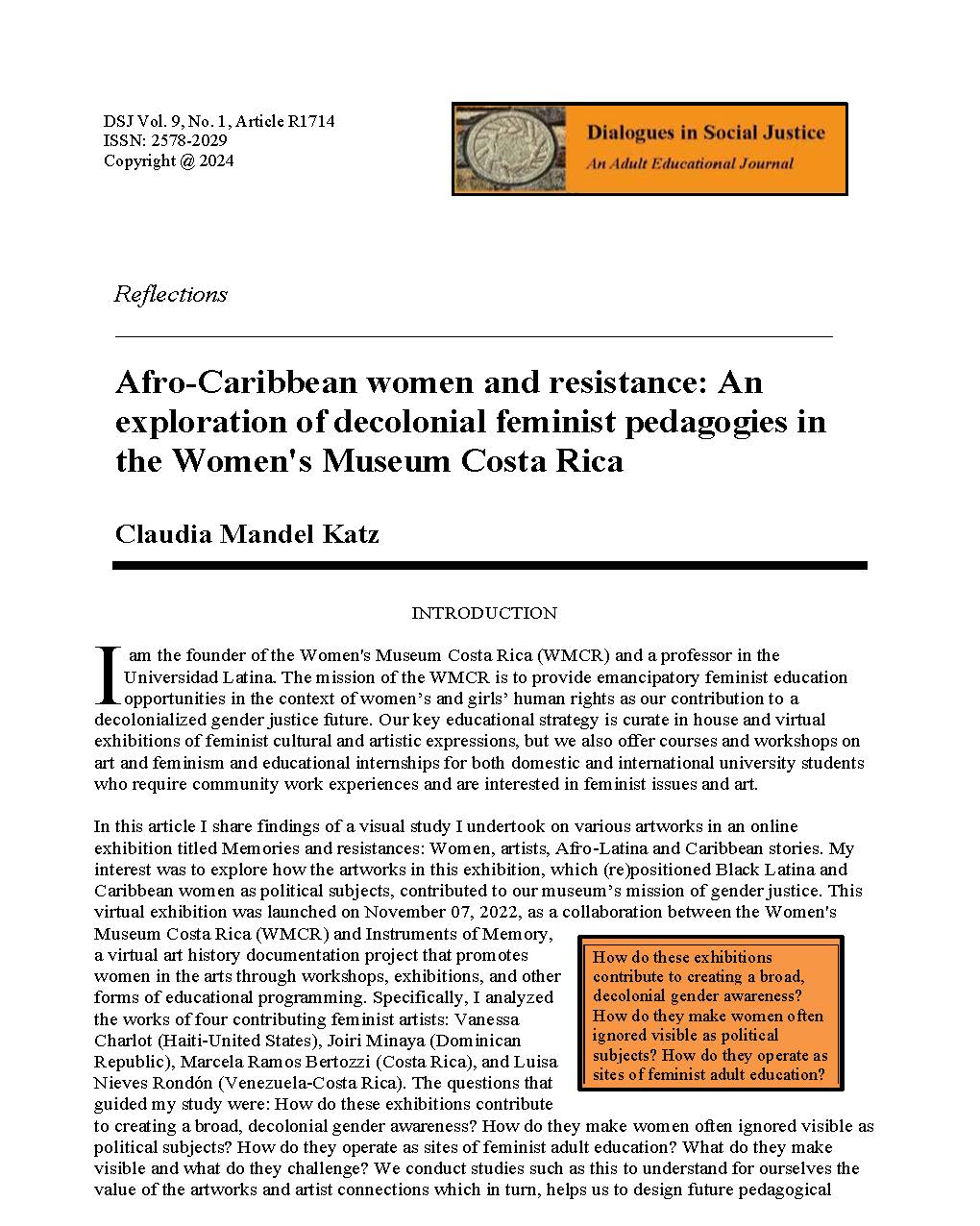Afro-Caribbean women and resistance An exploration of decolonial feminist pedagogies in the Women's Museum Costa Rica
An exploration of decolonial feminist pedagogies in the Women's Museum Costa Rica
DOI:
https://doi.org/10.55370/dsj.v9i1.1714Abstract
As a professor and founder of the Women's Museum Costa Rica I explore in this article how exhibitions help us in our pedagogical mission of a new decolonial gender awareness. Specifically, I analyze a number of selected artworks in online exhibition titled Memories and resistances. Women, artists, Afro-America and Caribbean stories in terms of how they make visible and represent women of Afro-descendants as complex political subjects. My findings show that this exhibition operated very effectively as an instrument of feminist decoloniality, by addressing the matrix of gender and race oppression, recovering different stories of women and memories of historical resistances, and offering a more collective sense of identity and agency. By curating exhibitions like this, our women's museum can play a crucial role in providing new anti-racist, anti-traditional and anti-patriarchal perspectives that educate current and younger generations about the histories and lives of women who have long been ignored.

Downloads
Published
Issue
Section
License
Authors who publish with this journal agree to the following terms:
a. Authors retain copyright and grant the journal right of first publication with the work simultaneously licensed under a Creative Commons Attribution License that allows others to share the work with an acknowledgement of the work's authorship and initial publication in this journal.
b. Authors are able to enter into separate, additional contractual arrangements for the non-exclusive distribution of the journal's published version of the work (e.g., post it to an institutional repository or publish it in a book), with an acknowledgement of its initial publication in this journal.
c. Authors are permitted and encouraged to post their work online (e.g., in institutional repositories or on their website) prior to and during the submission process, as it can lead to productive exchanges, as well as earlier and greater citation of published work (See The Effect of Open Access).

